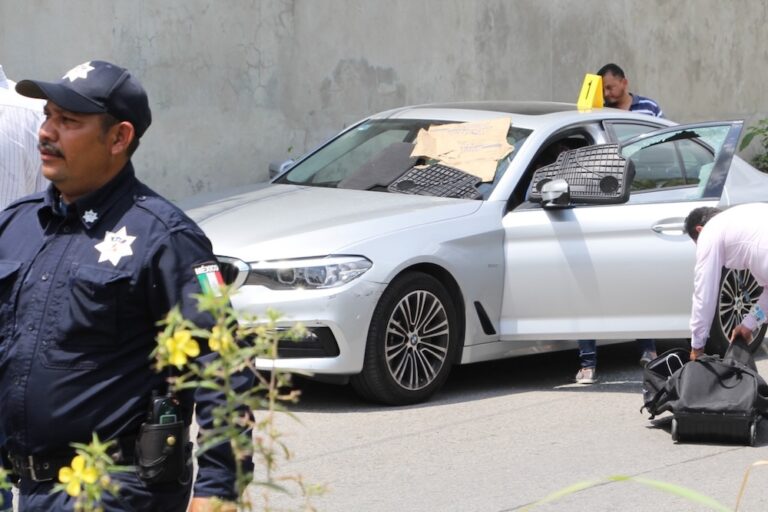CPJ reveals how drug-fueled crime, violence and corruption have devastated the country's press corps and destroyed citizens' rights to freedom of expression and access to information.
(CPJ/IFEX) – New York, September 8, 2010 – Throughout Mexico, from the borderlands to the Sierra Madre, criminal gangs and drug traffickers control the news. They use murder, abduction, and threats to censor coverage. They bribe corrupt journalists to plant favorable stories and attack their enemies.
In a new report, Silence or Death in Mexico’s Press, the Committee to Protect Journalists reveals how drug-fueled crime, violence, and corruption have devastated the country’s press corps and destroyed citizens’ rights to freedom of expression and access to information. “The government is being outflanked in the information war, just as it is on the streets,” writes CPJ Executive Director Joel Simon in the preface to the report, now available online and in print, in both English and Spanish.
More than 30 journalists have been killed or have disappeared in Mexico in the last four years alone, CPJ found, a number that rivals war-wracked countries such as Iraq and Somalia. These cases have gone almost entirely unsolved, a product not only of negligence and incompetence but of deep-seated corruption among law enforcement officials, particularly at the state and local levels, writes Carlos Lauría, CPJ’s senior program coordinator for the Americas and a co-author of the report.
In the northwestern city of Durango, co-author Mike O’Connor recounts the case of crime reporter Bladimir Antuna García, who was abducted in broad daylight on a main street and found shot to death hours later. Authorities have done virtually nothing to investigate. “Because no one knows who killed Antuna or why,” writes O’Connor, “journalists in the city say the investigation of crime stories has essentially stopped.”
And that is happening in city after city across Mexico, CPJ found. Honest reporters are forced to censor themselves, withholding basic information from the public. In Reynosa, along the northeastern border, the Gulf cartel controls nearly every aspect of daily life – including government, law enforcement, and the press itself. “The cartel’s control is so extensive that cops and cabbies and street vendors are its spies, watching the Mexican army’s patrols, watching for rival drug traffickers, watching for federal investigators, watching, even, their fellow citizens,” O’Connor writes.
In its report, CPJ examines the inability of President Felipe Calderón Hinojosa and Congress to address the devastating conditions. “The same state and local authorities so deeply corrupted by criminal groups remain largely in charge of fighting crimes against free expression, including murder, threats, and attacks on journalists and news outlets,” Lauría writes. “Their record – a near complete failure to enforce the law in crimes against the press – demands that Congress and the executive branch act urgently to take responsibility for this national crisis.”
CPJ’s report calls on Congress and the president to adopt sweeping reforms that would make crimes against free expression part of the federal penal code, assign to federal authorities the responsibility for investigating and prosecuting all attacks on the press, and establish accountability at senior levels of the national government.


